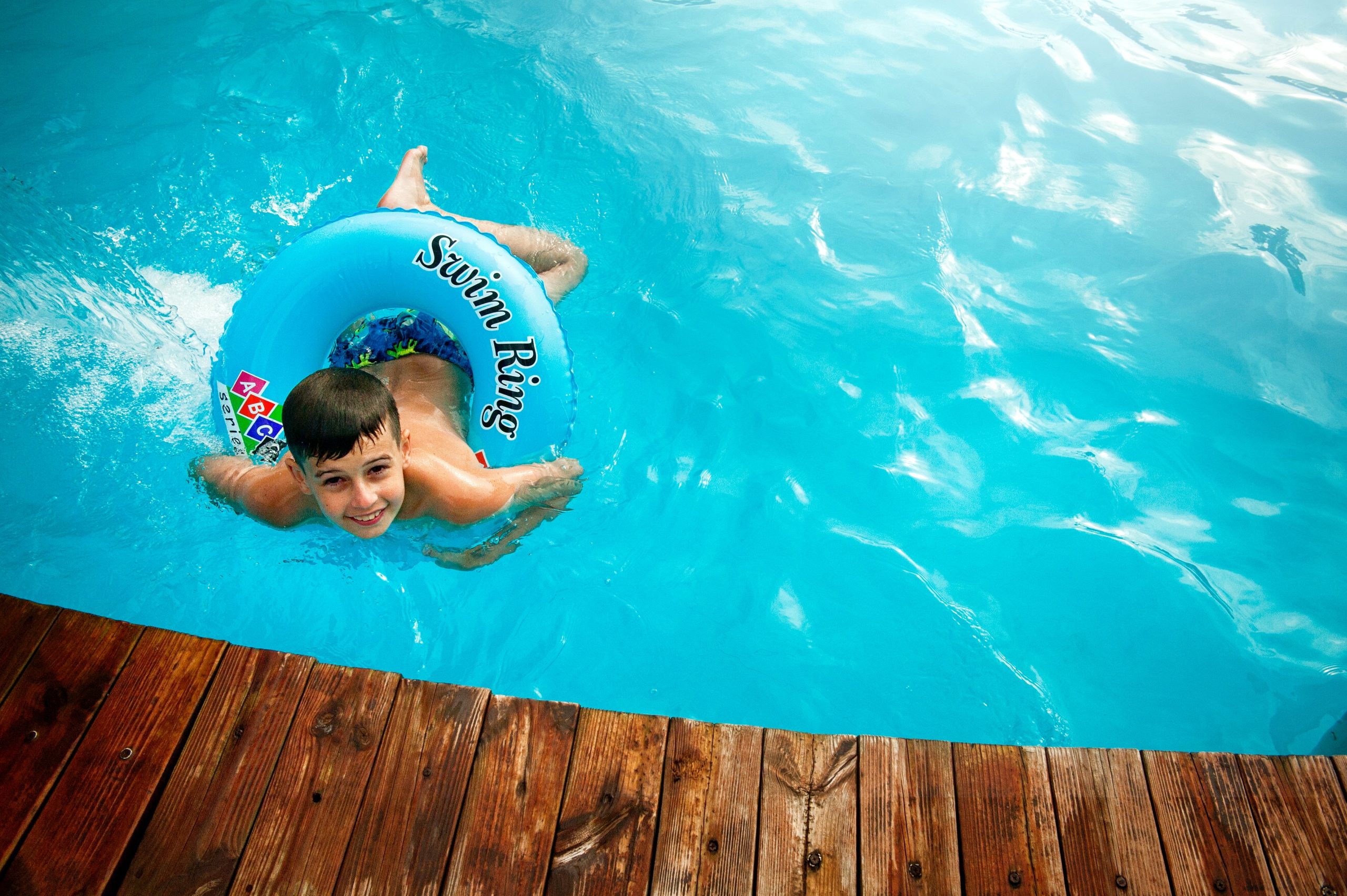A sacrificial anode is a type of corrosion protection device used in swimming pools to help prevent damage to metal components, such as the pool heater, ladder, or diving board. In this article, we’ll explain what a sacrificial anode is, how it works, and why it’s important for pool maintenance.
What is a sacrificial anode?
A sacrificial anode is a metal rod or bar that is made of a material that is more reactive than the metal components it’s designed to protect. When placed in water, the sacrificial anode corrodes first, sacrificing itself to protect the other metal components from corrosion.
Sacrificial anodes are commonly made of either magnesium or zinc, two metals that are more reactive than iron or steel. When a sacrificial anode is installed in a swimming pool, it creates an electrochemical reaction that draws corrosive elements away from the metal components of the pool and onto the sacrificial anode.
How does a sacrificial anode work?
The process by which a sacrificial anode works is called cathodic protection. Cathodic protection is a technique used to prevent corrosion in metal components by making them the cathode (a negatively charged electrode) of an electrochemical cell.
When a sacrificial anode is installed in a pool, it becomes the anode (a positively charged electrode) of an electrochemical cell. As the water in the pool contains various types of ions, including those that can cause corrosion, a small electric current is created between the sacrificial anode and the metal components of the pool. This electric current draws the corrosive elements away from the metal components and onto the sacrificial anode, where they react with the metal and cause the sacrificial anode to corrode instead.
As long as the sacrificial anode is in place and in good condition, it will continue to corrode over time, providing protection to the metal components of the pool. However, once the sacrificial anode has corroded completely, it will need to be replaced to continue providing protection.
Why is a sacrificial anode important for your swimming pool?
A sacrificial anode is an important component of a swimming pool because it helps to prevent corrosion in the metal components of the pool. Corrosion can cause serious damage to metal components, leading to rust, pitting, and even structural failure. If left unchecked, corrosion can also cause leaks in the pool, which can be expensive and time-consuming to repair.
Sacrificial anodes are particularly important for swimming pools because they are exposed to a variety of corrosive elements, including chlorine, salt, and other chemicals used to treat and maintain the water. These elements can cause corrosion in metal components over time, even in pools that are well-maintained.
Installing a sacrificial anode in your swimming pool can help to extend the life of your metal components and reduce the need for expensive repairs or replacements. It’s a relatively inexpensive and easy way to protect your pool and ensure that it continues to function properly for years to come.
How do you install a sacrificial anode in your swimming pool?
Installing a sacrificial anode in your swimming pool is a simple process that can be done by a pool professional or a knowledgeable DIY enthusiast. Here are the steps involved in installing a sacrificial anode in your swimming pool:
- Determine the type of sacrificial anode you need
The first step in installing a sacrificial anode in your swimming pool is to determine the type of sacrificial anode you need. The type of sacrificial anode you choose will depend on the type of pool you have, the size of your pool, and the metal components you need to protect.
For most swimming pools, a sacrificial anode made of either magnesium or zinc will be sufficient. Magnesium anodes are recommended for use in freshwater pools, while zinc anodes are better suited for saltwater pools. It’s important to choose the right type of anode for your pool to ensure maximum protection.
- Locate the metal components to be protected
The next step is to locate the metal components in your pool that need to be protected. This may include the pool heater, ladder, diving board, or other metal components.
- Install the sacrificial anode
Once you have determined the type of sacrificial anode you need and located the metal components to be protected, it’s time to install the sacrificial anode. The sacrificial anode should be installed in a location that is easily accessible and where it will not interfere with the normal operation of the pool.
In most cases, the sacrificial anode will be installed in the plumbing system of the pool, either before or after the pool heater. The anode should be installed using a special fitting designed for sacrificial anodes, which will allow for easy replacement when the anode has corroded completely.
- Monitor and replace the sacrificial anode
Once the sacrificial anode has been installed, it’s important to monitor it regularly and replace it when necessary. Sacrificial anodes typically last between 1-3 years, depending on the size of the anode and the amount of corrosive elements in the pool water.
You should check the sacrificial anode at least once a year to determine its condition and replace it if necessary. If the anode has corroded more than 50%, it should be replaced immediately to ensure continued protection for your pool’s metal components.
In addition to regular monitoring and replacement of the sacrificial anode, it’s also important to maintain proper pool chemistry and balance to reduce the amount of corrosive elements in the water. This will help to extend the life of your sacrificial anode and ensure that your pool’s metal components are protected.
Conclusion
A sacrificial anode is an important component of a swimming pool that helps to prevent corrosion in metal components. By sacrificing itself to protect other metal components, a sacrificial anode can extend the life of your pool and reduce the need for expensive repairs or replacements. Sacrificial anodes have been known to drastically improve the lifespan and reduce the maintenance required for your pool’s heater.
Installing a sacrificial anode in your swimming pool is a simple and relatively inexpensive process that can be done by a pool professional or a knowledgeable DIY enthusiast. By choosing the right type of anode, locating the metal components to be protected, and monitoring and replacing the sacrificial anode regularly, you can ensure that your pool’s metal components are protected and that your pool remains in good condition for years to come.


One thought on “What is a Sacrificial Anode?”